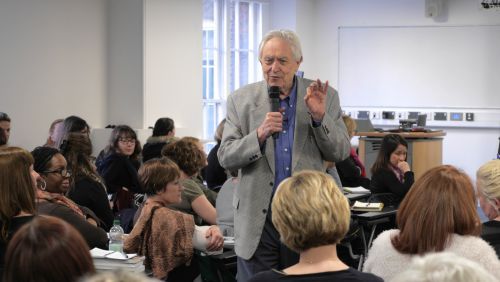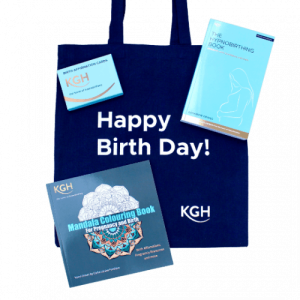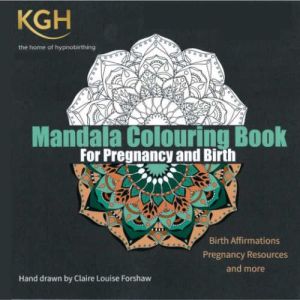A report by Deborah Hughes on the KG Hypnobirthing Sharing Day.
 1st March 2014, King’s College London.
1st March 2014, King’s College London.
Michel Odent has been a visionary and inspiration for birth workers and parents for over 35 years now and, now in his 80s, he still has the ability to bring key issues into sharp focus. His ongoing research into the “Primal Period” and subsequent health and well-being is of vital interest and importance, and his ability to speak to and engage an audience (strong French accent notwithstanding) is as strong as it was when he emerged as a public figure, thanks to the BBC, in the early 1980s. If you haven’t yet read or heard Michel Odent, rectify that as soon as you can for he is able to explain complex issues clearly and succinctly and his enthusiasm for his subject is infectious.
The KG Hypnobirthing Sharing Day consisted of Michel outlining some of his key concerns, particularly the rapid diminution in oxytocin release over the last 40 years and the possible epigenetic consequences of this phenomenon. Not only does the use of synthetic oxytocin, Caesarean section and actively managed third stages mean that the hormone of love is reduced perinatally, but he suggests that the reduction in the birth rate and the shortened duration of breastfeeding mean that our oxytocin system is under-used and may be weakening with consequences for humankind. Michel also discussed the changing bacteriological environment of birth and its possible long-term effects. He made a plea for us all to protect the involuntary process of birth from inhibitory factors, and outlined the importance of the suppression of neocortical activity during labour.
The day consisted of Michel talking for most of the morning but then addressing the audience’s questions in depth through the afternoon. The audience comprised hypnobirthing teachers, student midwives, doulas, some parents-to-be, and a few midwives. It as a shame that not many midwives and no doctors attended as the day was excellent value and really got to the heart of what is important about birth and the responsibility attendant on working in the field. Oxytocin is beginning to receive some attention even in conservative obstetric and midwifery circles. The radical impact of what understanding its role and nature means for birth practices has however, as yet, barely been perceived. Michel Odent’s message is that the physiology of birth has far-reaching implications for us all, which we ignore at our peril.









